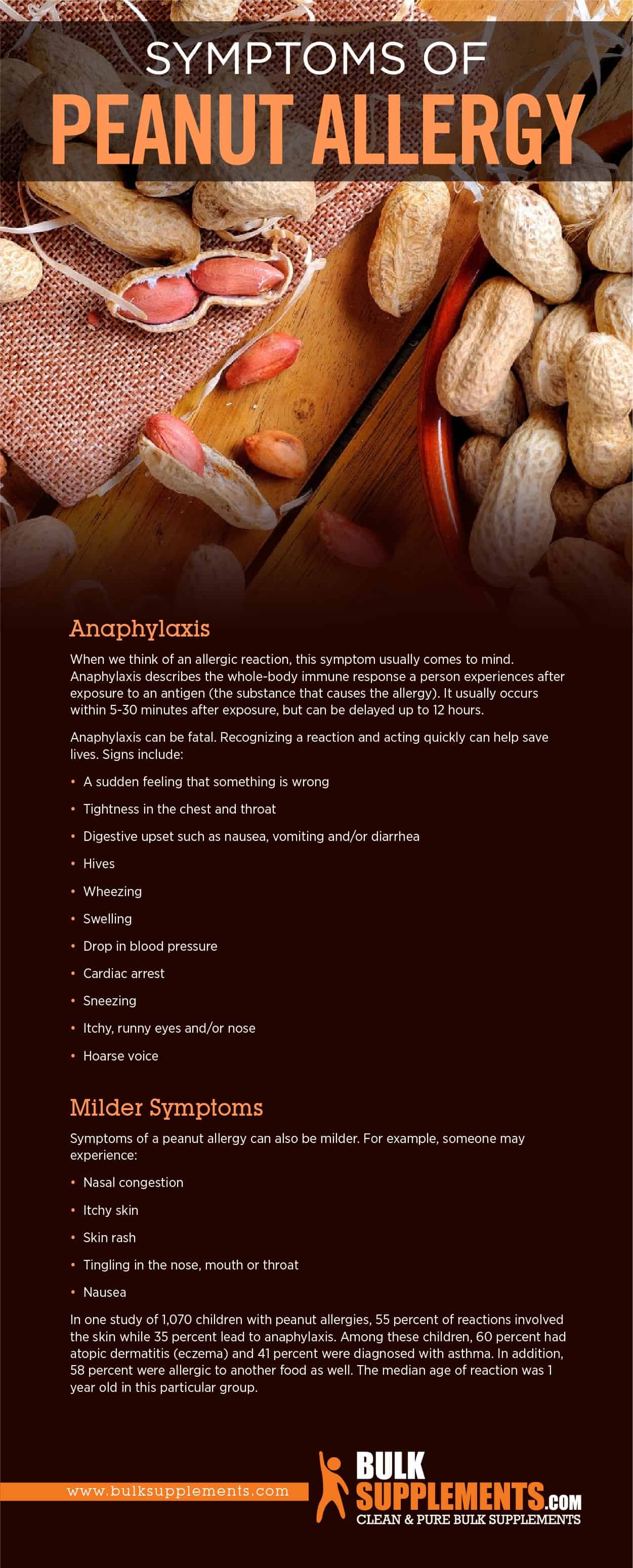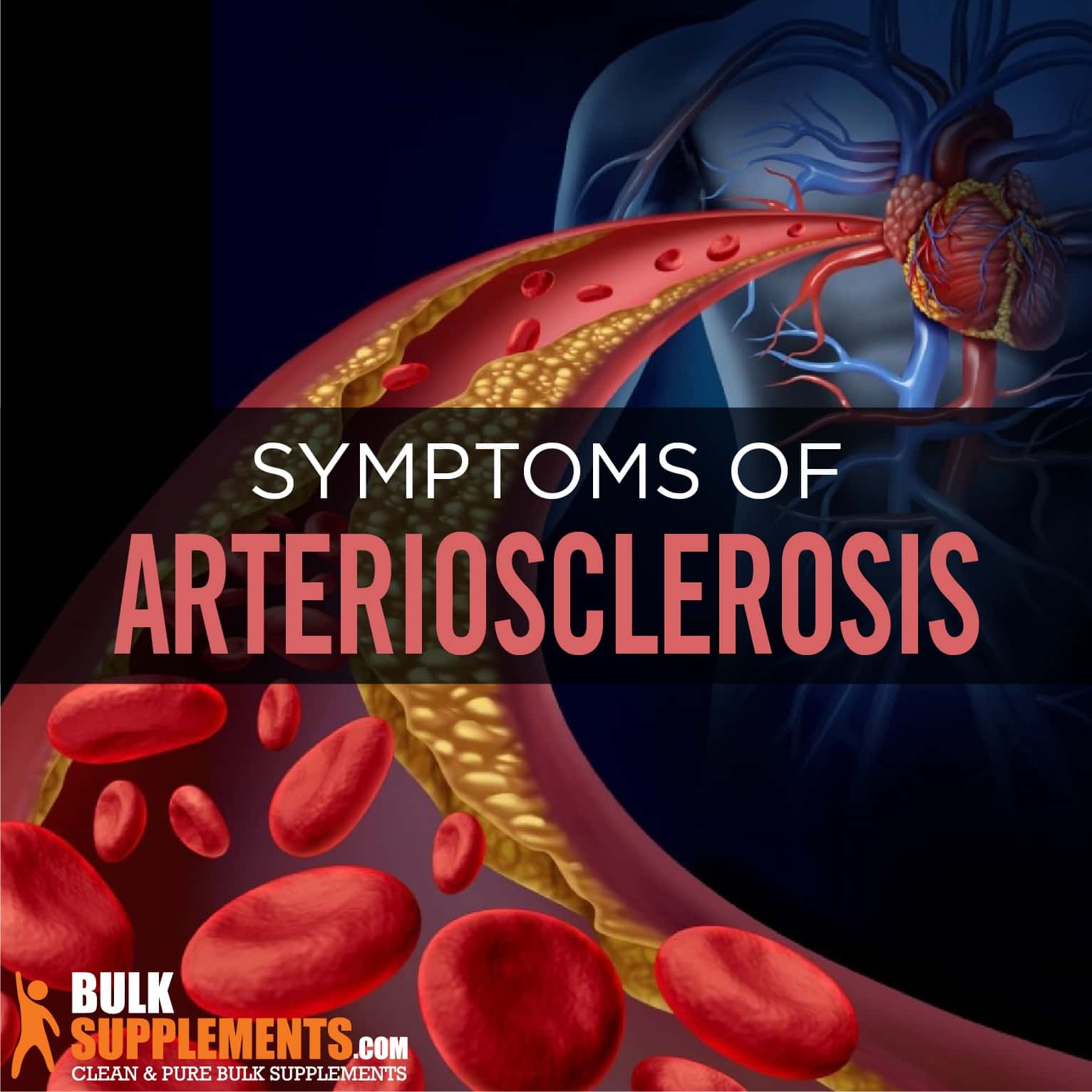Peanut Allergy: Symptoms, Causes & Treatment

Peanut Allergy
What is a Peanut Allergy?
A peanut allergy occurs when a person’s immune system has an abnormal, hypersensitive response to peanuts. Peanuts are one of the most common allergens and when ingested by people who are allergic, they can cause severe or life-threatening reactions.
Peanut allergies appear to be on the rise, especially in infants and young children. For example, between 2010 and 2017, reported cases of peanut reactions rose 21 percent in the United States. In some developed countries, up to 10 percent of young children may be allergic. Rates also seem to be rising in developing countries. Researchers are working hard to understand the reasons behind the increase in peanut allergies and develop new therapies to help those that have them.
While 20 percent of children outgrow their peanut allergy, most people have it for life. Understanding the signs of an allergic reaction and how to prevent exposure to peanuts remains the main focus of the overall management of peanut allergies in children and adults.
Symptoms of a Peanut Allergy
Symptoms of a peanut allergy can vary in severity. The way a person’s body reacts to peanuts on one occasion can be different from how it reacts on another occasion.
Anaphylaxis
When we think of an allergic reaction, this symptom usually comes to mind. Anaphylaxis describes the whole-body immune response a person experiences after exposure to an antigen (the substance that causes the allergy). It usually occurs within 5-30 minutes after exposure, but can be delayed up to 12 hours.
Anaphylaxis can be fatal. Recognizing a reaction and acting quickly can help save lives. Signs include:
- A sudden feeling that something is wrong
- Tightness in the chest and throat
- Digestive upset such as nausea, vomiting and/or diarrhea
- Hives
- Wheezing
- Swelling
- Drop in blood pressure
- Cardiac arrest
- Sneezing
- Itchy, runny eyes and/or nose
- Hoarse voice
Milder Symptoms
Symptoms of a peanut allergy can also be milder. For example, someone may experience:
- Nasal congestion
- Itchy skin
- Skin rash
- Tingling in the nose, mouth or throat
- Nausea
In one study of 1,070 children with peanut allergies, 55 percent of reactions involved the skin while 35 percent lead to anaphylaxis. Among these children, 60 percent had atopic dermatitis (eczema) and 41 percent were diagnosed with asthma. In addition, 58 percent were allergic to another food as well. The median age of reaction was 1 year old in this particular group.

Causes of Peanut Allergy
Peanut allergies occur when the immune system overreacts to the proteins in peanuts. The immune system then releases certain chemicals into the bloodstream, which causes the symptoms. Most reactions to peanuts result from eating peanuts or food made with peanut products.
Inhaling particles from peanuts (such as during the process of grinding, for example), can also cause a reaction. However, simply smelling the odor of peanuts or peanut butter is not believed to cause harm.
Similarly, coming into contact with a peanut usually doesn’t cause a reaction unless the person then touches his or her eyes, mouth or nose.
Risk Factors
Peanut allergies appear to be increasing worldwide. Researchers still don’t understand why, but they’ve identified some risk factors. Factors that put someone at a higher risk include:
- Age; children are more likely to develop a peanut allergy than adults
- Being male
- Having a family member with food allergies
- Vitamin D deficiency
- Living without pets and in an environment that is excessively sterile
- Antibiotic use
- Having eczema, asthma or seasonal allergies
- Being born in one country/culture and migrating to a new one, adopting the new culture’s diet and lifestyle
Allergies to Other Foods
Peanuts are not actually nuts, they are legumes. Other foods in the legume family include soybeans, peas and lentils. Tree nuts, on the other hand, include almonds, walnuts, brazil nuts, macadamia nuts, cashews, pistachios, pecans and chestnuts.
Having a peanut allergy does not increase your risk for having an allergy to other legumes, but does increase your risk of tree nut allergies by 25-40 percent. In addition, about 40 percent of children with food allergies in general are allergic to more than one food.
Allergy vs. Intolerance
While a food allergy stems from the immune system, a food intolerance is related to the digestive system. The two are often confused. A food intolerance can also cause very uncomfortable symptoms and require a dietary change but generally is not life-threatening.
Treatment for Peanut Allergy
Medication
When anaphylaxis occurs due to a severe peanut reaction, epinephrine (a synthetic form of the hormone adrenaline) is used to prevent someone from going into anaphylactic shock. People with diagnosed food allergies can be prescribed medications such as EpiPen that automatically inject the medication into the body.
SEE ALSO

Arteriosclerosis: Symptoms, Causes & Treatment
Milder reactions can be treated with antihistamines like Benadryl.
Preventing Exposure to Peanuts
Preventing exposure to peanuts sounds like an obvious and simple solution to peanut allergies, but can be tricky. For one thing, many foods that don’t contain peanuts are produced in factories that do handle them. This is when cross-contamination can occur. Second, some foods contain peanut products in ways that aren’t obvious. The importance of reading and understanding food labels cannot be overstated. If there are any questions, contacting the manufacturer is recommended.
There is an exception, however. Highly refined peanut oil does not need to be labeled as a peanut ingredient because it doesn’t contain any peanut proteins. Many people with allergies can safely consume it. Keep in mind, though, that this does not apply to cold pressed, expelled or extruded peanut oils. These may contain proteins to which the body can react. “Arachis oil” is another name for peanut oil which may or may not be highly refined.
Oral Immunotherapy
While not a cure, oral immunotherapy (OIT) can help make a peanut allergy less dangerous for some people. This experimental technique done in a medical environment involves giving allergic people tiny amounts of peanut in an effort to desensitize the immune system. Successful OIT does not mean a person can begin to eat peanuts. Rather, he or she is less likely to have a life-threatening situation as a result of accidental exposure. Research remains ongoing into the effectiveness and safety of OIT.
Supplements to Help Reduce Allergy Symptoms
Quercetin
Many plant-based foods like blueberries, kale, oranges, turmeric and parsley contain quercetin, which has strong anti-inflammatory properties. Research shows that it can help stop the production of many different types of chemicals in the body that can contribute to allergic responses in people. This applies not only to seasonal allergies, but also food allergies including those to peanuts. It can’t replace medical treatment during a reaction, however. As a supplement, take 250 to 500 mg of quercetin once or twice daily, or as directed by physician.
Butterbur
Butterbur, a plant also known as Petasites hybridus, reduces the body’s production of histamine, the chemical in the body that causes allergic inflammatory reactions. As a result, it can help provide some relief with some of the conditions that co-occur with food allergies like asthma and eczema. Take 150 mg of butterbur extract powder daily with plenty of water or as directed by a physician. The extract powder should be taken for 3-4 months before gradually lowering the dose. If symptoms reappear after lowering the dosage, gradually increase again.
Green Tea Extract
Research shows that green tea extract may help to prevent your body from building up an immune response to a range of allergens, which include common ones such as pollen and dust. Green tea naturally contains Epigallocatechin-3-gallate (EGCG), which is believed to be responsible for this anti-inflammatory effect. Green tea extract 50% EGCG is recommended to be taken in servings of 500 mg to be consumed either once or twice a day. Intake should never amount to more than 1,000 mg per day, and this supplement should never be used for more than 3 months at a time.
The Bottom Line
Peanut allergies can be deadly, and they’re on the rise. As researchers scramble to understand why this is happening and to come up with vaccines and treatments, food manufacturers in many countries are being required to disclose any ingredients that might cause a reaction. Epinephrine shots are useful, but not foolproof, and desensitization therapies have a long way to go before they can used on the general public. Some natural remedies can help reduce the inflammatory response in people who are prone to food allergies, but they’re by no means appropriate as a treatment during an acute reaction. Currently, diligence by those who manufacture, prepare and serve food is the most effective way to keep a peanut-allergic person safe.



